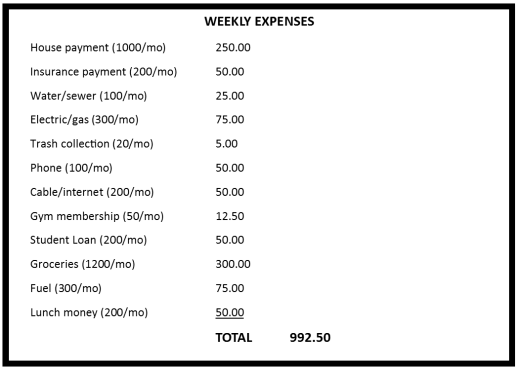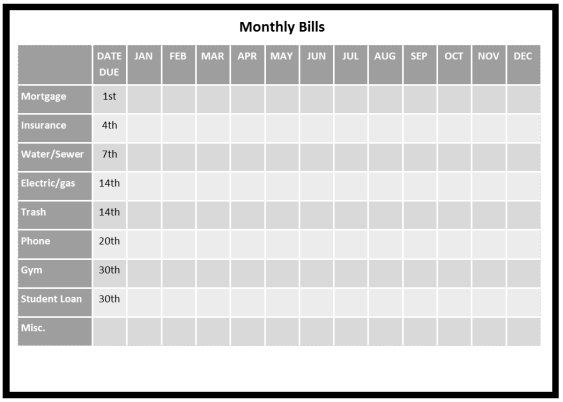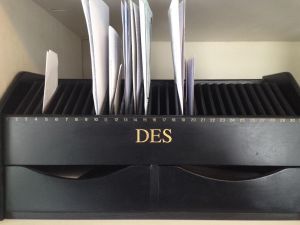HOUSEHOLD BUDGETING 101
So many of us have absolutely NO idea where to start when it comes to budgeting! I am not an expert on the subject but this method works well for me. It may seem like a no-brainer, but for some, figuring out a budget is about as easy as herding butterflies.
Managing your household finances boils down to this: YOUR INCOME MUST EXCEED YOUR EXPENDITURES.
What is your total household income? Do you know? You should. It’s the basis for your entire budget. Simply put, add 4 AVERAGE weeks’ worth of pay stubs together. (We’re looking for the amount the check was written for here, not your gross income.) If your income varies, find your average baseline. What do 4 average weeks look like for you?
What are your monthly living expenses? I am talking about EVERYTHING you spend money on monthly. If your expenses are more than your NET income then you are living beyond your means. This is the land of debt. No one wants to be here.
We get paid weekly so I break down our budget to the week. This means taking everything and dividing it by 4. If your mortgage payment is $2000/month then you need to allot $500/wk to it. Make sense? Here’s an example:
You can do this using a spread-sheet or by hand. Just GET IT DONE.
Based on the above weekly expenses – If your NET weekly income is $1000 then you might want to make some adjustments in your budget as you don’t have any wiggle room. A gym membership?
Let’s say, hypothetically, that your NET income is $1500/wk rather than $1000. That leaves $507.50/wk in wiggle room. What you do with that is up to you. Might I suggest a savings account? Or throwing a little extra money at your debt or mortgage?
Now what? Implement a system.
I am a highly visual person. Here’s a simplified example of a spread sheet I use:
I keep a printed hard copy with my bills. When I pay a bill, I write the amount I paid in the appropriate box. Every week as soon as I get paid I sit down and pay bills. At a glance I know which bills haven’t been paid yet. I know what is due even BEFORE the bill comes in the mail. It makes planning simple!
Set up a place where your bills will “live” and keep your Monthly Bills record with it. Here’s where my bills live:
Open your mail every single day and file your bills IMMEDIATELY. If your bills come electronically you could use scrap paper as its “holder” so it gets put with your bills. The same works for autodraft payments. If, for example, your mortgage payment is automatically deducted from your account every month on the first then you could write ‘mortgage payment, $1000, due the 1st’ on an index card or scrap paper and keep it with your bills.
I’m sure financial advisors are out there shaking their heads at my method. There are, no doubt, better ways of doing this (particularly in our tech-savvy world). Take it or leave it, this is just what works for me!




Comments